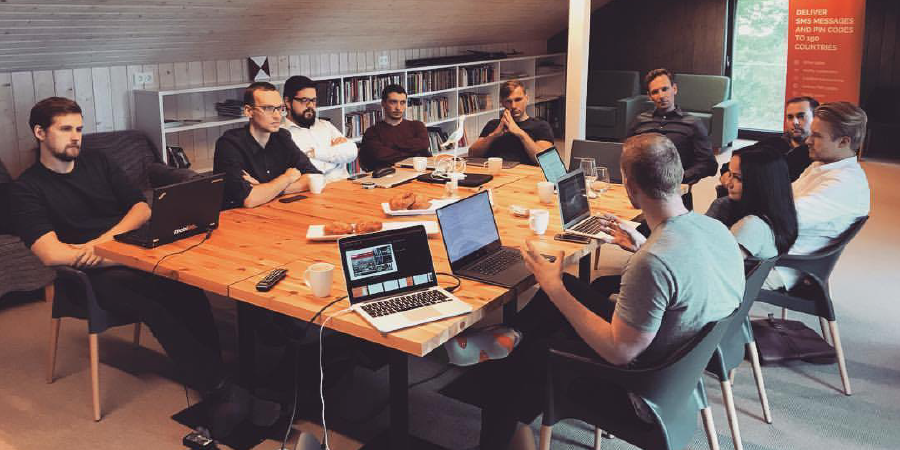Well, here are two things that I believe when it comes to company culture.
First, I define company culture as a characterization of how people on your team work together and how they coexist. Therefore, it is the most important characteristic of any company, because the unique style of working together determines what the company can achieve, given time and resources.
It’s not difficult to understand why it comes up in conversations so often.
I also believe that culture cannot be created. Culture is simply the result of how people behave and interact with each other. At best, managers can only influence behavior by doing the following three things:
- Observe it
- Point out behavior patterns you’d like to keep
- Be picky in the hiring process and find people with similar mindsets
So, when anyone asks me to describe Messente’s culture, here's what I’ve observed and would like to hold on to the most.
Transparency
Our definition of transparency has two aspects:
- Keeping people in the loop about what’s going on
- Helping the team understand how we make decisions
Our small team is split between three different offices, so we use Basecamp as our virtual office. Basecamp is set up to ask everyone about their plans for the day every morning. It takes only a minute or two to answer the question, but the answers are visible to the entire team, so people in Riga know exactly what’s on everyone’s plate in Tartu for the day.
We also encourage transparency through meetings. Everyone at Messente is welcome to join any meeting they’d like, whether it’s a physical meeting or conference call, to have a better idea of the direction of the company. Anyone at the meeting can pitch relevant ideas and is part of the decisions we make.
It’s important to note that transparent decision making does not mean always we're looking for a consensus. The people who lead different parts of Messente still make the final decisions. Transparency is a principle that everyone’s voice is heard and people will know why certain decisions are made.
Experiments
Our habit of running experiments stems from the understanding that no one knows the exact answer for all the questions we have –there are always assumptions. Simply, there’s no roadmap that tells us where to go.
No matter the company, there are things that people don’t know. However, corporate culture doesn’t accept not having the answers. It’s as if not knowing next year’s revenue or the outcome of negotiations means that you’re incompetent.
Saying, “I don’t know,” is perfectly fine. This is what experiments are for. You run experiments to know if a marketing approach will bring a certain number of new signups, or if changing filters in lead research will result in higher sales conversions.
Even if we follow our best practices playbook closely, everyone is encouraged to conduct experiments. The may be another, better way to do things. For example, our sales team runs a Sales Lab where they run fun experiments. We’ve gotten to a point that we’re expanding the reach of our Sales Lab through meetups to share what we know with a larger community of salespeople in tech.
Out of curiosity, have you observed which keywords best describe your company culture? Any why?




